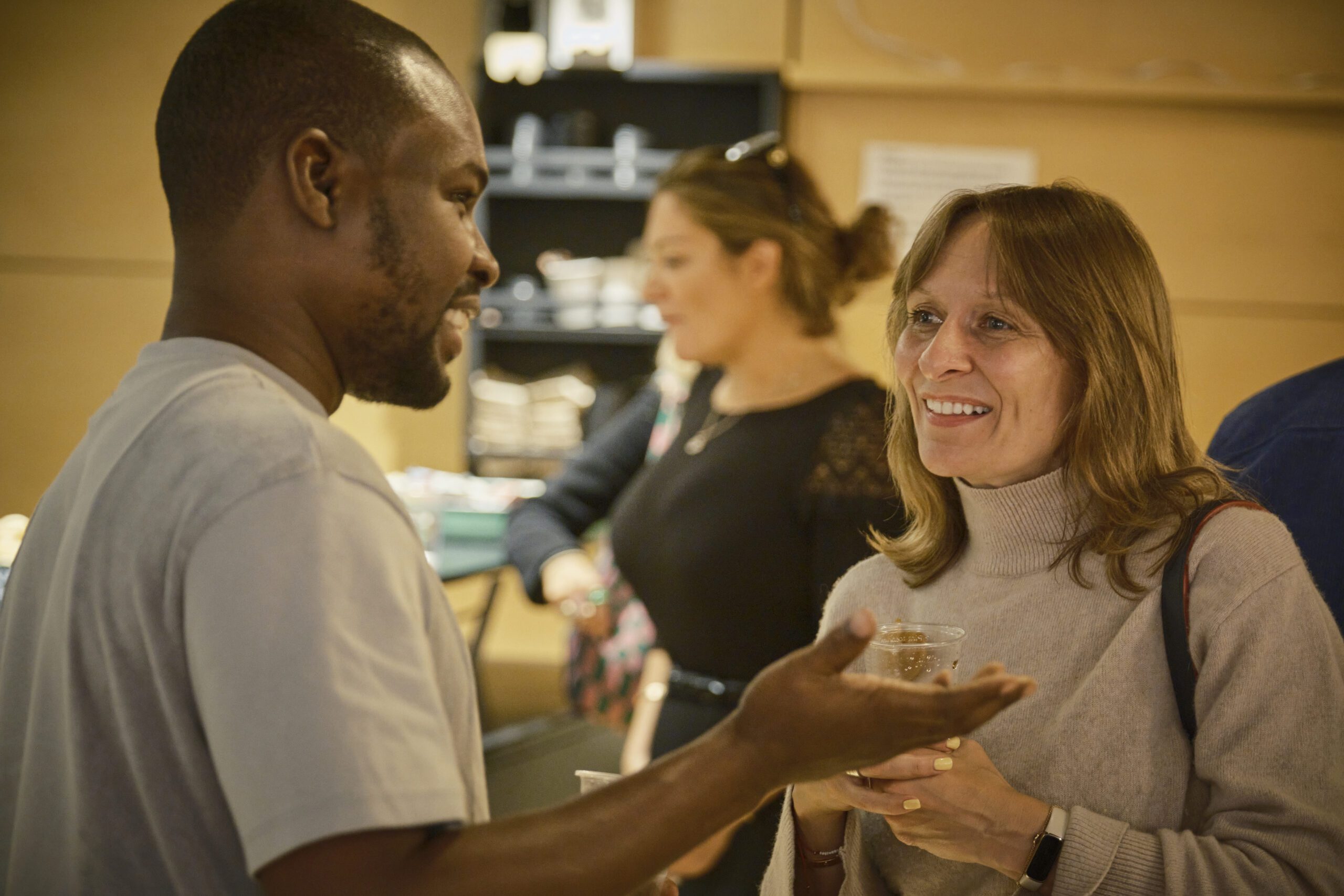How the casting directors of ‘Starlight Express’ and ‘Sister Boniface Mysteries’ use Spotlight to find performers and their other methods.
As a performer, you only see one side of the casting process. You or your agent submits you for a role and if you’re right for the part, you’ll send a self-tape or attend an in-person audition.
Behind the scenes, casting professionals are constantly on the lookout for new talent and using tools like Spotlight to find the perfect performer who fits their brief. Every casting director is different. They each have their own process, experience and speciality. However, there are certain methods most of them will use when looking for performers to cast.
At the Spotlight Prize, we spoke to casting directors James Pearson of Pearson Casting and John Cannon from the BBC. Pearson Casting has cast productions such as the Oliver-award-winning Operation Mincemeat, SIX the Musical on the West End, and the upcoming revival of Starlight Express. John Cannon’s impressive list of credits include Sister Boniface Mysteries, Father Brown, EastEnders and Silent Witness.
We asked James and John what processes they use to find performers for their projects. Here’s what they shared:
Casting Through Breakdowns on Spotlight
At Spotlight, casting professionals post over 200 breakdowns on our website every week and, unsurprisingly, James Pearson and John Cannon are among them.
“Obviously, we use Spotlight all the time,” James says“We create searches and also put breakdowns out.”
John Cannon also does his casting, “Primarily using the Spotlight link [and] putting our breakdowns out.”
For those who don’t know, a breakdown is a summary of all the details of the project and role a casting professional is casting for. Casting professionals will post breakdowns to the Jobs Feed on Spotlight, where agents and performers can put themselves forward for the roles.
Take a look at our guide to understanding the Jobs Feed for more information about this process.
A breakdown is crucial in clarifying what a casting professional wants in terms of physical characteristics (like age, height or ethnicity or heritage) and skills – such as accents, dancing, and other niche talents). Sometimes the breakdown will be very specific, while other times the casting professional may leave criteria such as appearance and gender open to see a wider range of talented performers.
As an actor, it’s worth remembering that, sometimes, criteria on a breakdown may be specified to accomodate characters that have already been cast.
Casting Through Social Media
Sometimes, if a casting professional is searching for a very specific, very niche performer who they haven’t been able to find through Spotlight – or if they have the desire and budget to search through a large pool of performers – they may post their breakdown on wider-reaching channels, such as social media.
James Pearson acknowledges that he uses social media especially, “Because we do a lot of new writing work. So, often some of the actors that are required [for roles] are not necessarily through conventional training or routes.”
However, it’s important to be mindful of casting breakdowns posted on social media.
On Spotlight, only those with casting accounts can post breakdowns, and every casting professional is vetted by us before they gain access to a casting account. This means that every breakdown posted comes from a verified casting professional, and we will remove breakdowns that cause issues or are flagged by members using our ‘Report Concern’ button.
On social media, anyone can post a breakdown and pretend to be a casting professional. Therefore, it’s very important to do your research before applying for the casting. Look into the role and production in more detail, make sure the breakdown has come from a legitimate email address, see where the casting takes place, and do some background research on the person posting it.
Most of the time, the breakdowns you see on social media will also appear on Spotlight, so it’s always worth checking with your agent in case they’ve already submitted you for it through our platform.
Inviting Casting Directors to See You Perform
Just as the England manager goes to football matches to scout his next squad, casting directors go to theatres, screens and graduate showcases to find the latest talent for their productions.
John Cannon says he finds actors, “By watching them in action on the telly [and] in the theatre.”
Casting directors tend to have incredible memories, so if they like what they see at a showcase or production, they’ll likely keep you in mind for future roles they’re casting for. They’re always on the lookout for new talent to suggest to the production team, so it’s beneficial for both you and them to make them aware of your acting talents.
If you’re a drama school graduate with a showcase coming up, have your first stage role booked, or will soon be appearing in a TV commercial, let a casting director you’re interested in working with know.
Send them a brief email clearly stating where and when they can see you and be sure to put aside a ticket for them if they need one.
Make it as easy as possible for them to see you in action, and even if they can’t make it, they’ll at least know you’re getting work as an actor and are serious about your career.
Take a look at our website for more tips and interviews from casting directors, and advice on how to help them find you on Spotlight.
Find out more about Spotlight’s membership options and start looking for auditions today!



















